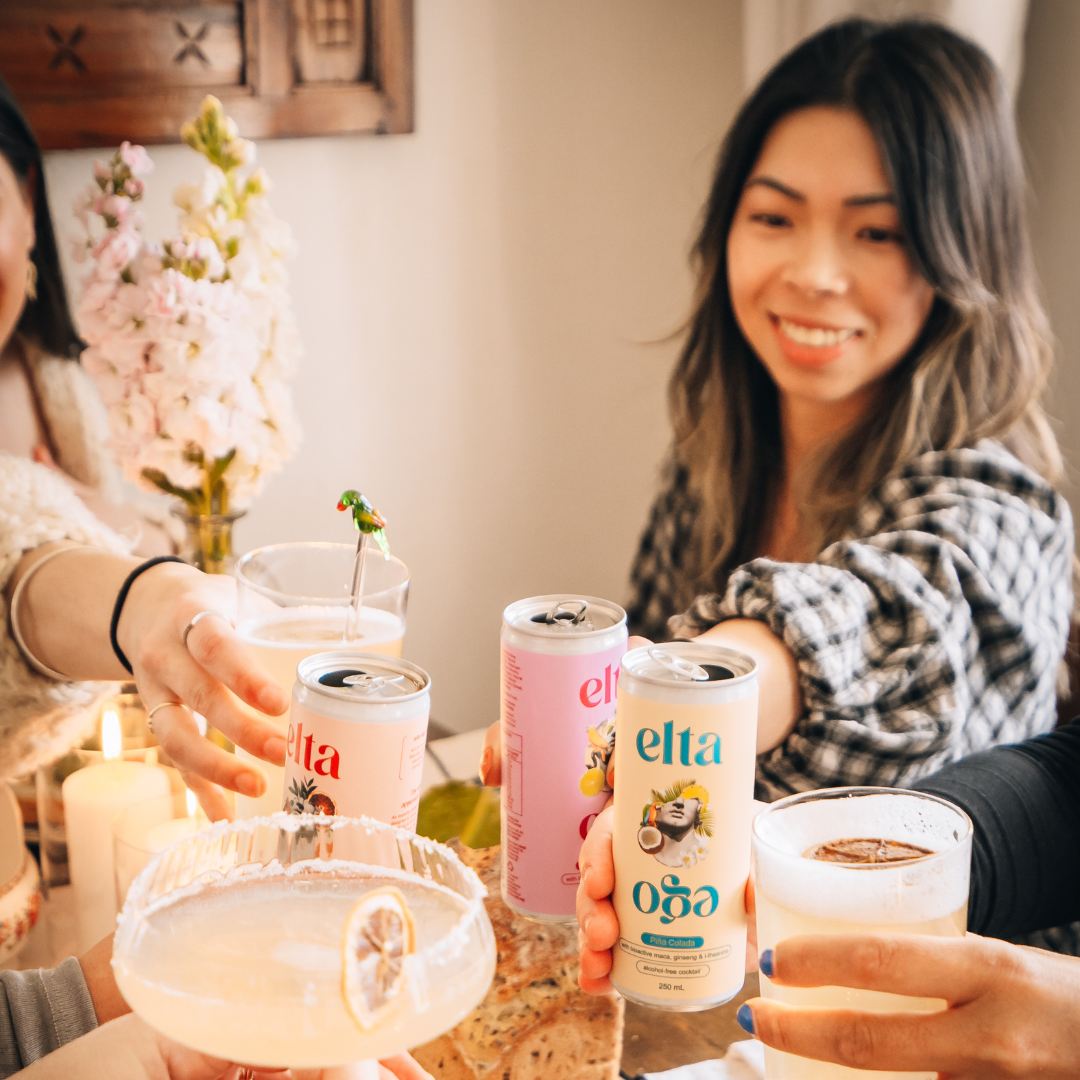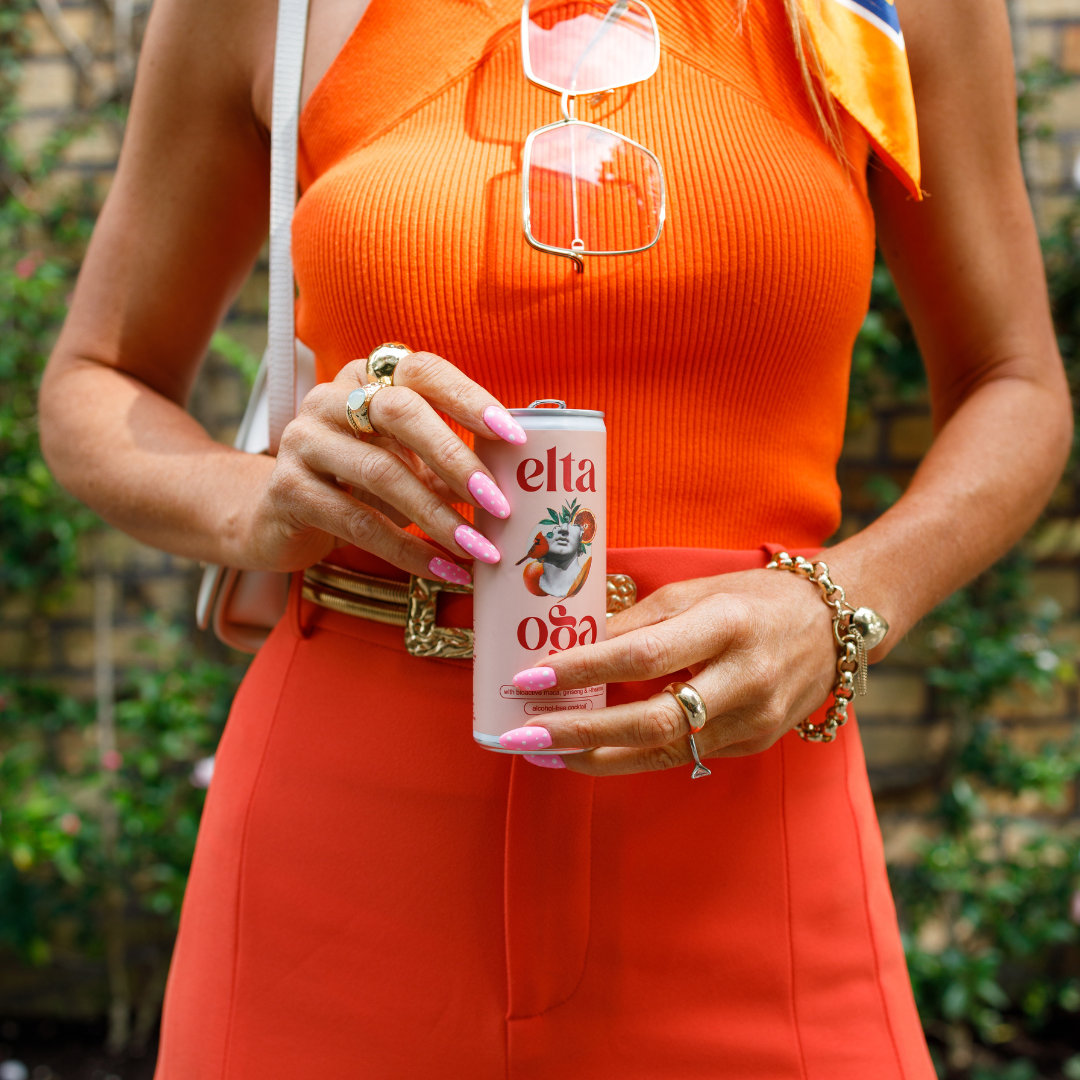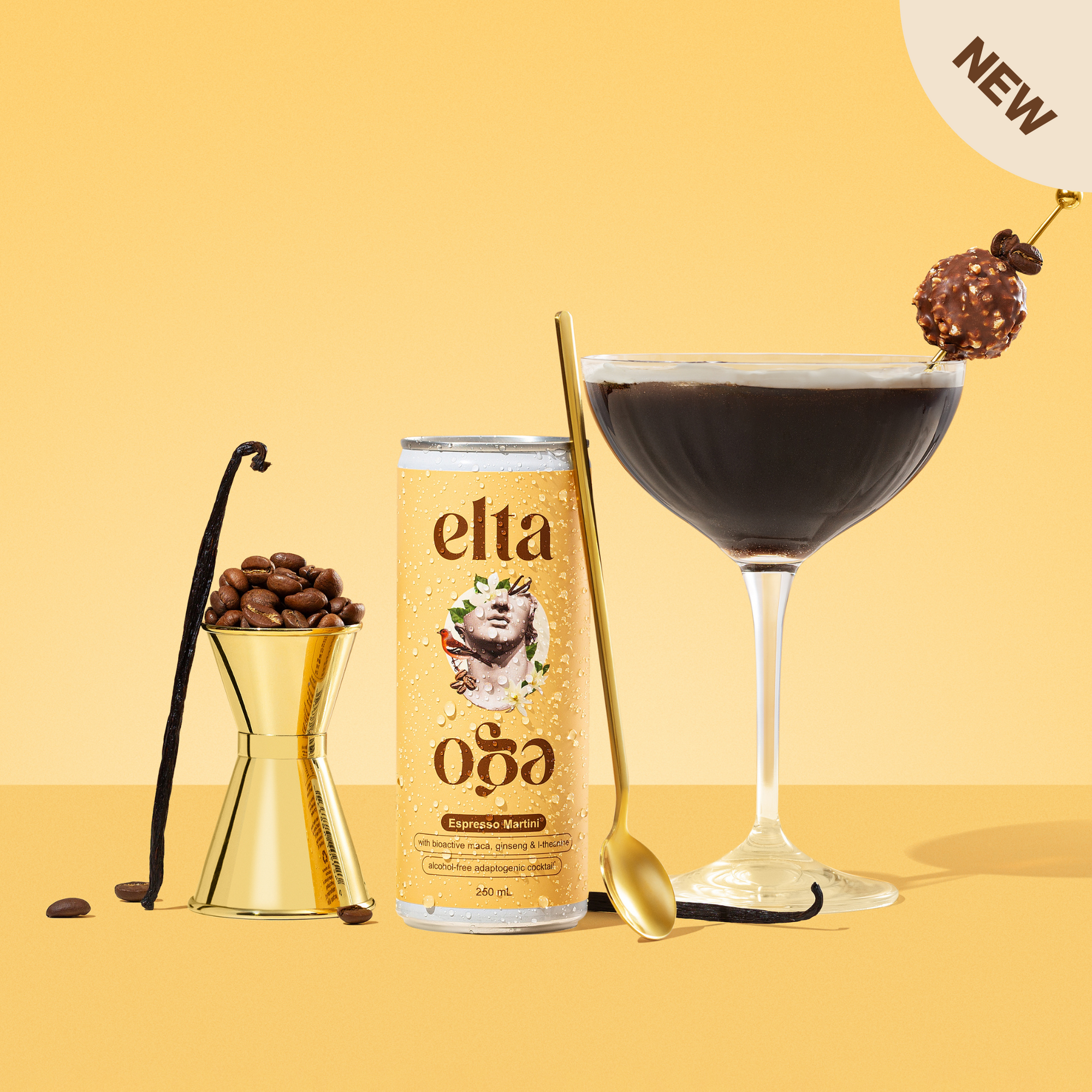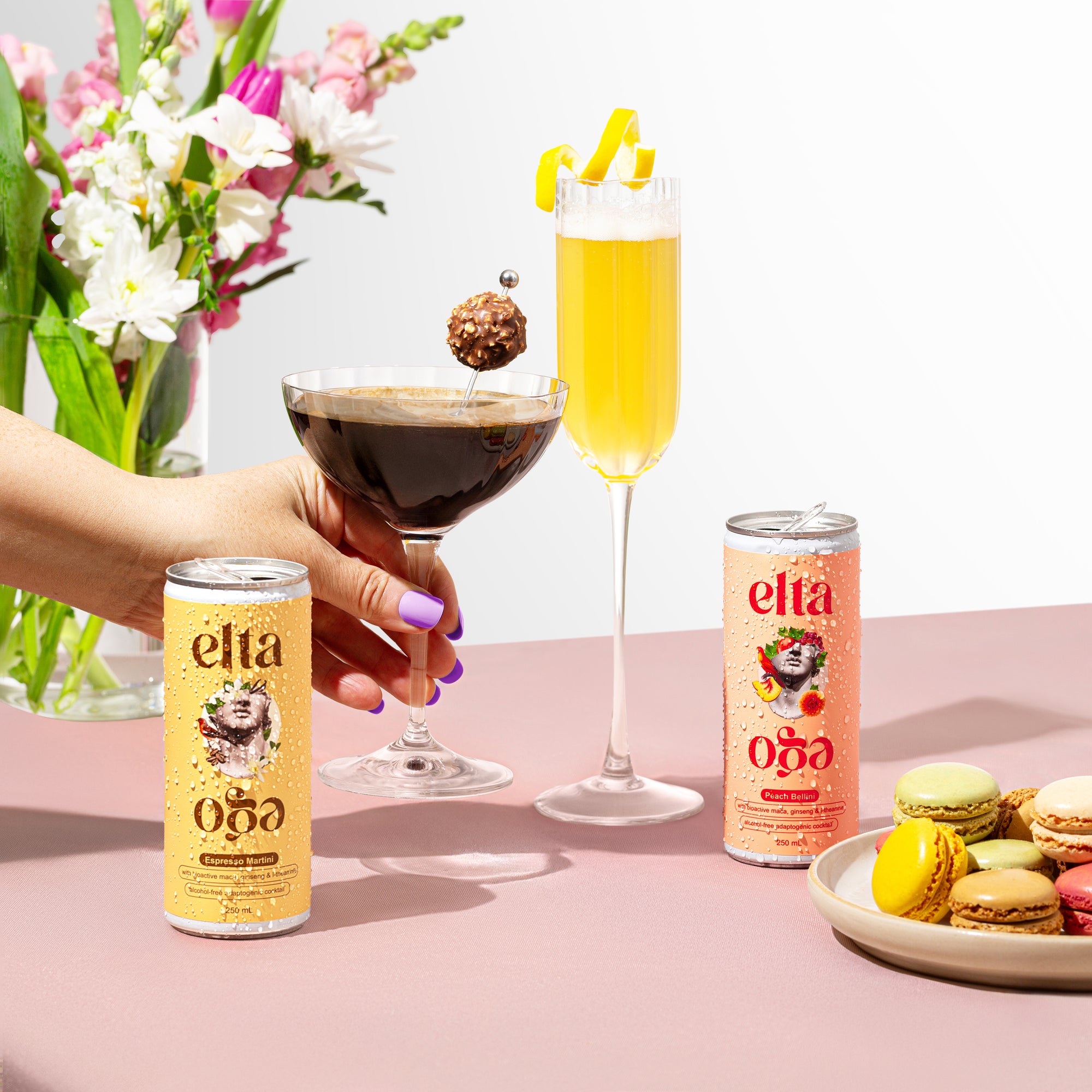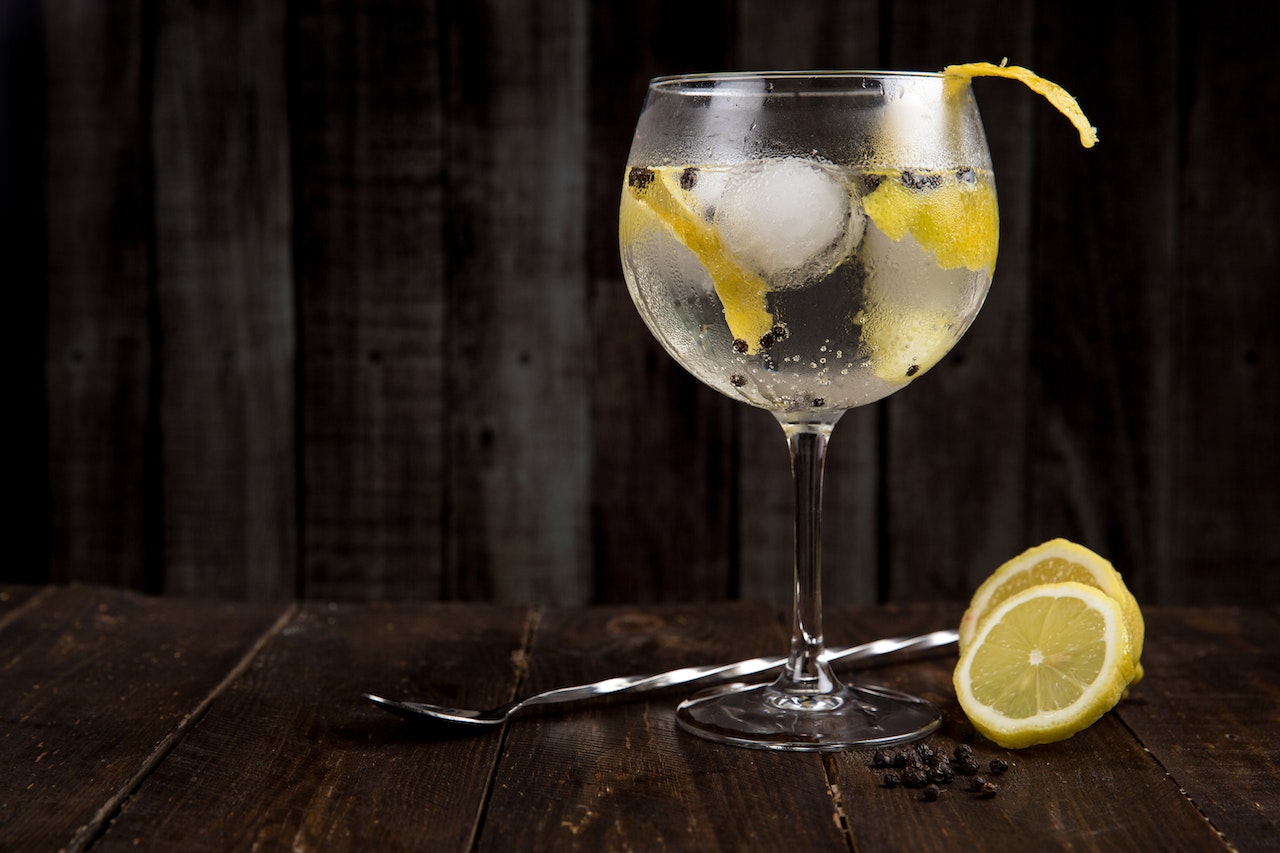
Curious About How the Best Non Alcoholic Gins Are Made?
If you don't want the downsides of consuming alcohol but you still want to have a refreshing aperitif after a long day, a non-alcoholic gin can satisfy that need.
One reason why gin is such a delicious and versatile drink is because the varieties of flavours that can be produced from different combinations of botanicals are endless - no two gins brands ever taste the same.
Non-alcoholic gin (aka alcohol-free gin) has been growing in popularity over the past few years as a healthy alternative to alcoholic gin - with a similar taste yet zero alcohol content (or at least less than 0.5% alcohol).
How on earth do they make such a complex spirit without the alcohol you may wonder?
Read below to find out what the different methods are for producing alcohol-free gins and what the pros and cons are of each.
What is non alcoholic gin?
Put simply, non-alcoholic gin is a gin that has been either brewed the traditional way and then had its alcohol content removed, or it is a combination of the same flavours and ingredients that are in a gin, but without any alcohol created, added or removed during the production process.
Since gin has a complex taste due to the distillation of several different types of botanical herbs, spices and fruits, it is one of the best types of spirit to recreate as a non-alcoholic alternative. Non-alcoholic vodka, on the other hand, is much harder to reproduce since the main flavour is alcohol.
How is non-alcoholic gin made?
There are several different ways that alcohol-free gin is made, each with their own pros and cons regarding flavour, cost and complexity.
Method 1 - Distillation + Alcohol Removal
For this method, the gin is distilled the traditional way with the alcohol then being removed at the end of the process. This is one of the most time-consuming and high cost methods as it is a more complex process than creating traditional alcoholic gin.
- First, a neutral-flavoured alcoholic spirit is fermented and distilled, usually from wheat or barley, to an alcohol concentration of at least 37.5%.
- Next, the botanical ingredients (herbs, seeds, fruits, flowers and spices) are added to a copper still (which is a metal brewing container). The mix of alcohol and botanicals are then gently heated and left to sit for a number of weeks to allow the flavours and aromas to be released from the botanical ingredients in to the gin spirit. Note that the spirit must have a main flavour of juniper berries in order to be called a gin.
- The alcohol is then removed from the gin by way of a further distillation process which evaporates the alcohol and separates it from the rest of the liquid, leaving a gin flavoured spirit but without any alcohol (or at least less than 0.5%). This separation process is possible because alcohol evaporates at a temperature of 78°C (172°F) whilst water evaporates at a higher temperature of 100°C (212°F).
- Finally, natural ingredients are then added to the alcohol-free gin to add back some of flavours and mouthfeel that were lost when the alcohol was removed. These may include ingredients such as acacia gum and sugars to mimic the dense feeling in the mouth that alcohol usually provides. The flavours that are added are usually extracts of some of the botanical ingredients that may have been weakened during the alcohol-removal process (since some of them also evaporate along with the alcohol).
Overall, this process can take up to six weeks to complete, which is longer than it typically takes to produce alcoholic gin due to the additional steps required.
Pros
- This method gives a very complex taste that is similar to alcoholic gin since it uses the same process only with an additional few steps at the end to remove the alcohol and round out the flavour profile.
Cons
- Some of the flavours (or at least their intensity) are removed along with the alcohol. These flavours need to be added back in after the alcohol removal process in order to obtain a similar complexity and intensity of the flavours of alcoholic gin.
- The mouthfeel (i.e. how the drink feels in your mouth) of the spirit changes when the alcohol is removed - it feels too light and has too much of a watery feel. The best non alcoholic gins add depth back into the spirit via natural ingredients such as acacia gum.
Method 2 - Macerating and Soaking Botanicals
This method does not involve any distillation, therefore no alcohol (except trace amounts) is produced during the process. Instead, the following process if followed:
- The botanical ingredients (such as juniper berries, citrus peel (principally lemon and orange), cardamom and grains of paradise) are diced or crushed so that their flavours can be more easily extracted.
- They are then macerated (i.e. softened) in purified water for several weeks in order to significantly infuse their flavours and aromas in to the water. Each botanical may be macerated in liquid by itself or combined with all of the other botanical ingredients in a single vat.
- The liquid is then filtered to remove the solids so that only the aromatic, flavoured gin base remains.
- This gin base is then usually augmented with additional natural ingredients (such as thickeners and natural extracts) to improve the flavour and mouthfeel.
Pros
- This process is better for the environment as there is less energy required to make the spirit, since there is no need for a heated process to remove alcohol.
- This process generally costs less since the process is much less complex than the first method above.
Cons
- Since these types of alcohol-free gin spirits are not distilled the traditional way, the flavours can sometime not taste exactly like they do in alcoholic gins, due to the lack of a fermentation process that modifies the chemical structure of some of the flavours and aromas.
Method 3 - Using Natural Extracts and Flavours
The third method for creating non-alcoholic gin is where natural extracts and flavours from the botanicals used in gin are added to purified water to create a spirit or drink that tastes like gin. This process is mostly used for ready-to-drink (RTD) mixed gin drinks such as alcohol-free gin and tonic beverages.
- Extracts are created whereby each of the botanical ingredients are separately macerated in extraction liquids, namely pure ethanol or maltodextrin. These extractions are then filtered and refined to create strong extracts which have very potent concentrations of flavours and aromas from the botanical ingredient it was extracted from.
- Natural flavours on the other hand are created using the same organic compounds found in the botanical plants, however, the organic compounds are often produced using other organic materials and processes such as fermentation.
- A combination of extracts and flavours from the different botanicals are then added to filtered water along with other natural ingredients such as acacia gum or natural sugars (for mouthfeel).
- If the spirit is to be made into a pre-mixed drink such as a gin & tonic, additional flavours (such as tonic water) are then added. The drink is then carbonated and pressurised in cans or bottles.
How do you drink alcohol free gin?
A common complaint about non-alcoholic gin spirits is that they taste too watery and weak. This is because alcoholic gins usually contain 40% alcohol, which is the largest component of flavour and mouthfeel in the spirit. Therefore it is difficult to replicate both the mouthfeel and flavour of alcohol in an alcohol-free spirit.
Instead, non-alcoholic gin spirits are best enjoyed when combined with a mixer such as tonic water or soda. At Elta Ego, we have spent countless hours perfecting the flavours, mouthfeel and aroma of our gin & tonics so that they are practically indistinguishable from alcoholic gin & tonics in blind taste tests (join the waitlist to try our Raspberry and Yuzu Gin & Tonic).
Why does alcohol free gin cost similar to real gin?
Without the alcohol in the bottle, you would think an alcohol-free gin would surely cost less than an alcoholic gin right? Unfortunately not!
As discussed in the section 'how is non-alcoholic gin made', the process for creating non-alcoholic gin is actually more complex due to the fact that it requires the additional step of removing the alcohol content and then adding additional natural ingredients to bolster the flavour and mouthfeel. These steps are on top of the standard fermention and distillation process that alcoholic gin undergoes.
Therefore alcohol-free gins cost more to produce because they still use the same premium ingredients yet the process takes longer, uses more energy (to evaporate the alcohol) and uses more equipment.
What does non-alcoholic gin taste like?
Just like alcoholic gin, alcohol-free gin can have a large variety of different tastes depending on which combination of botanicals are used - from juniper berries to orange peel, coriander to cardamom and other spices.
If you are tasting alcohol-free gin spirit without mixing it, the flavour can be relatively different from it's alcoholic sister since it is difficult to fully mimic the flavour and mouthfeel of alcohol, which is usually 40% of the liquid makeup.
However, if you are drinking a pre-mixed alcohol-free gin and tonic that has been produced using high-quality ingredients and processes (such as our Raspberry and Yuzu G&T), then you may not be able to tell in a blind taste test that the drink does not contain alcohol. This is partly because the alcohol component in a pre-mixed drink such as a G&T is much lower than that of a spirit and is not a main component of the drink (the alcohol content in a classic gin & tonic is usually only 5-10%).
The taste also depends on the quality of the ingredients and processes that the manufacturer has used to create the non-alcoholic gin - if significant care has been taken to develop the flavour profile and mouthfeel of the drink, then it will taste very similar, if not indistinguishable from the alcoholic version of the drink. However, if you try an alcohol-free gin from brands who have not invested in quality ingredients and production processes then it will not taste very similar to the alcoholic version of the drink.
Why is alcohol free gin becoming more popular?
Non-alcoholic drinks are becoming increasingly popular with alcohol-free gins the most sought after and highly-rated types of non-alcoholic cocktails. People in younger age groups are leading the alcohol-free revolution, as shown by one study from 2018 in the UK (published in the journal BMC Public Health) that showed over 25% of young adults between the ages of 18-24 described themselves as 'non-drinkers'.
Over a ten-year period between 2005 to 2015, the proportion of people in this age group who identified themselves as 'non-drinkers' increased from 18% to 29%. One can assume with the ever-increasing popularity of abstinence or alcohol-reduction, that this proportion has increased further in the four years since.
The alcohol-free movement is also quickly gaining traction for people aged 30 and over, as people focus more on their health and longevity and become more aware of the harmful effects of alcohol on the body and the brain.
For example, a recent study showed that there is no safe amount of alcohol consumption for the brain, with even “moderate” drinking negatively affecting nearly every part of it.
Conclusion
Whether you are just looking for a healthier mixed drink for a mid-week's evening or you do not drink at all, non-alcoholic gins are one of the best alcohol-free options to try, since they have such complex flavours with a multitude of different types to suit your flavour preferences.
Even though they do not contain alcohol, the highest-quality options are nearly indistinguishable from their alcoholic siblings, especially when mixed with a tonic or soda water.
On that note, let's raise a glass to our health - cheers!
Try our delicious alcohol-free adaptogenic Raspberry and Yuzu G&T here.

